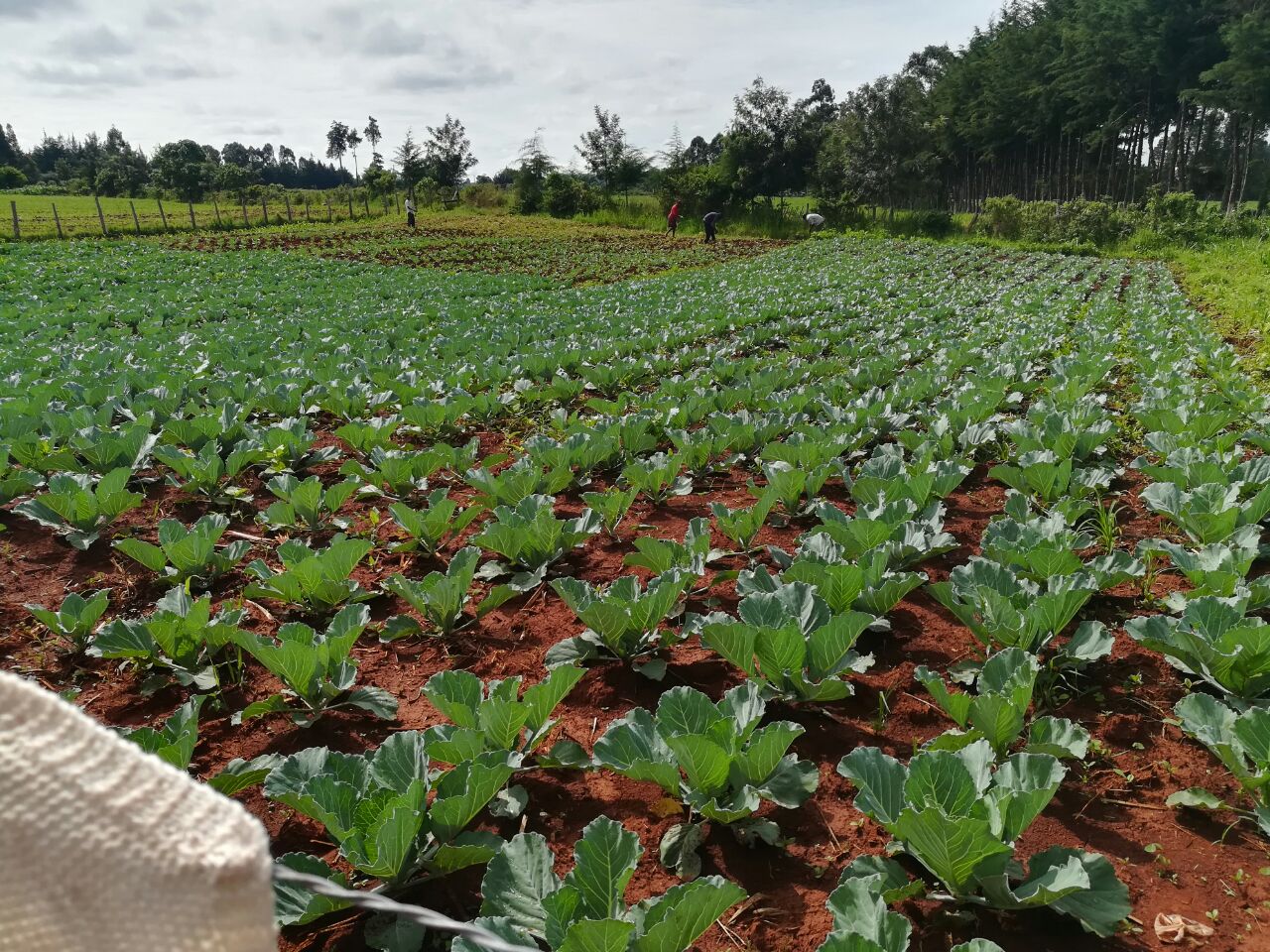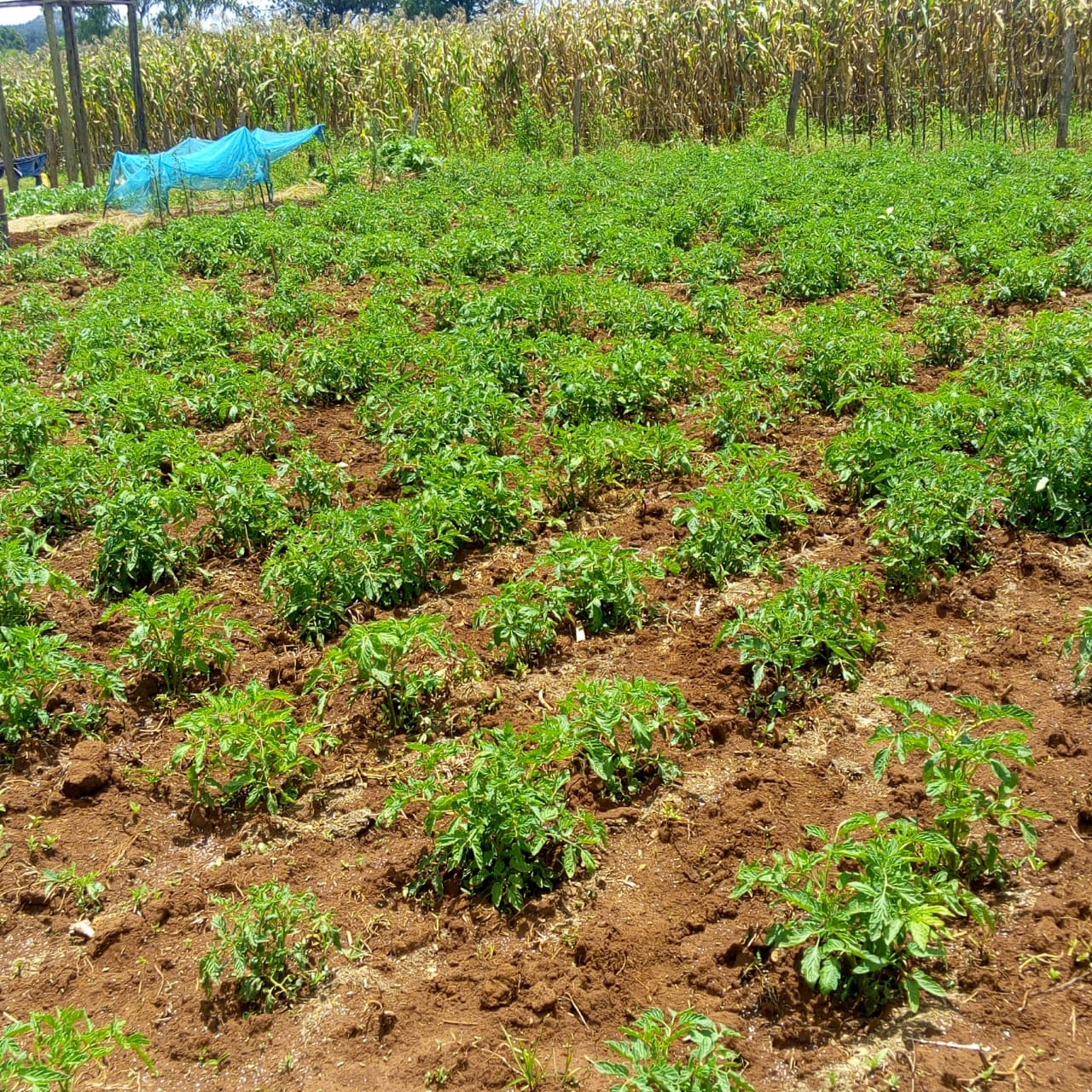In 2013, Naftali Bosire, 29, a Uasin Gishu based farmer abandoned maize farming to focus on short season crops such vegetables and tomatoes, a venture he does not regret to date.
“I abandoned maize farming because it was not worth it; I used to harvest 12, 90 kilogram bags from one acre after waiting for a period of six months,” said Bosire.
In his first season after abandoning maize, Bosire invested Sh60,000, a loan from Equity Bank to lease two acres of land at Sh10,000 each, he bought seedlings worth Sh8,000, two bags of planting fertilizer at Sh3,500 each , two bags of top dressing fertilizer at Sh4500 each and labor cost him Sh15,000 . He used his savings to purchase insecticides at Sh8,000 and herbicides from Amiran Kenya at Sh6,000.
The farm is based in Turbo Sub County, Sugoi village where he has leased two acres and bought another one acre at Sh330,000.
“From my harvest I got 8,000 cabbages heads per acre which I sold to brokers from Kakamega and Bungoma at Sh25 per head for a big cabbage, Sh15 to Sh18 for a medium headed one and Sh13 for the smallest,” said Bosire.
“From that production, I realized that I could earn more from short season crops which take at least three months to mature than maize which takes about six to seven months,” said Bosire.
The price of a 90kg of maize for instance fluctuates yearly as the prices are controlled by the government. The selling price normally ranges from Sh2,300 to Sh3,000 per 90 kg bag. However, with short season crops such as cabbages Bosire earns between Sh100,000 to Sh200,00 per acre in three months compared to a maximum of Sh30,000 per acre of maize.
Related content
How to identify genuine maize seeds this planting season
Cabbages give higher yields at lower cost when grown in rotation with traditional vegetables
Limuru farmer hacks vegetable market with Chinese cabbages

Cabbage plantation at Bosire's farm in Sugoi, Uasin Gishu County.
Since short season crops can be planted three times in a year, Bosire has installed drip irrigation worth Sh89,000 in his farm with the help of Irri Hub Kenya, an irrigation service provider.
“Initially I used to employ manuals to draw water from a well in the farm, however, with the help from Irri Hub and Solar Sun Culture I bought a solar pump on higher purchase in September 2018 which enables me to pump water to a water tank before being channeled to the drip pipes, this allows all round year crop cultivation even in times of drought,” he said.
He paid Sh8,900 as deposit for the pump while the rest of the money is paid in installments of Sh3,900 a month for 30 months.
At the moment, Bosire has one acre of spring onions, one acre of tomatoes expecting 30 tonnes, half an acre of black night shade (managu) and another half an acre under kales (sukuma wiki) production.
According to the 2019 Economic Survey Report, the value of vegetable exports increased by 14.9 per cent from Sh24.1bn to Sh27.7bn in 2018.

Tomato plants at Naftali Bosire's farm.
“My inspiration is just to work in the farm, that’s where I unwind and relax,” said Bosire.
In future he plans to venture into dairy farming. In this, he will utilize the manure from cows to fertilize the farm instead of buying commercial fertilizer and hence save on production costs.
Bosire can be reached on +254 705 304 059.
















Comments powered by CComment